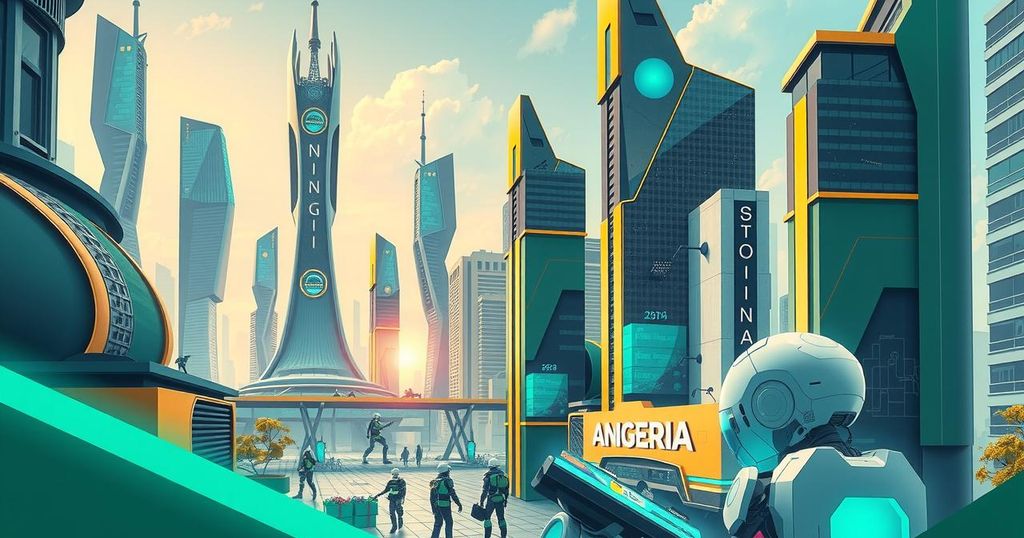Robotics, as a field combining engineering and computer science, has significant implications for Nigeria’s future. Various applications in agriculture, healthcare, and education demonstrate the potential for economic growth and improvement in quality of life. Innovations like MekaMon and ABB robots illustrate the ongoing advancements in robotics. Challenges such as training access and equipment costs must be addressed to fully realize these benefits.
Robotics is defined as a branch of engineering and computer science focused on designing, manufacturing, and operating robots to assist humans in various tasks. Originally inspired by science fiction, the concept of robotics has evolved significantly with the introduction of the first programmable robot, Unimate, in 1961, based on principles laid out by Isaac Asimov. Modern robots are constructed through a combination of programming, control systems, and sensors, allowing them to function in various environments.
Various applications of robotics have emerged in numerous industries, enhancing efficiency and productivity. Industrial robots are utilized in manufacturing and logistics, while home robots like automated vacuum cleaners and lawnmowers simplify household chores. Military and law enforcement rely on robots for surveillance, while aerospace engineering employs robots for maintenance and inspection tasks. Robotics also plays a pivotal role in artificial intelligence, enabling processes like machine learning and object recognition.
Noteworthy innovations such as the MekaMon gaming robot, developed by Silas Adekunle and Eniola Edun, exemplify how robotics can engage youth in technology and education. A partnership was formed between their company, Awarri, and Nigeria’s government to utilize MekaMon in schools to teach coding. Similarly, Enwono Edo demonstrated how ABB robots significantly enhance TV production capabilities, merging technology with creativity.
Experts assert that robotics has the potential to revolutionize sectors such as agriculture, healthcare, and education in Nigeria. AI-powered tools can optimize agricultural practices, improve healthcare delivery through telemedicine, and enhance learning experiences via personalized education platforms. These advancements could create real benefits, leading to increased economic growth and improved quality of life for Nigerians.
A new institute dedicated to robotics and AI is set to launch in Nigeria, as declared by Prof Bart Nnaji, which aims to equip students with knowledge in intelligent machine technology. Despite the potential, challenges like limited training resources, lack of trust in local talent, and high importation costs for robotics equipment must be addressed to foster growth in the robotics sector.
Dr. Olusola Ayoola notes that backing local robotics ventures is crucial for the industry to evolve, advocating for training facilities that can enhance practical skills and provide opportunities for aspiring developers. He emphasizes the need for collaboration among stakeholders to ensure the hardware aspect of robotics is developed in Nigeria, facilitating the emergence of innovative AI solutions.
In conclusion, robotics presents a transformative opportunity for Nigeria across multiple sectors, facilitating advancements in agriculture, healthcare, education, and industry. While the establishment of educational institutes and innovative projects underscores the potential of robotics, addressing challenges such as training accessibility and trust in local expertise is crucial. With collaborative efforts aimed at developing hardware capabilities, Nigeria can leverage robotics to enhance economic growth and improve the quality of life for its citizens.
Original Source: punchng.com






